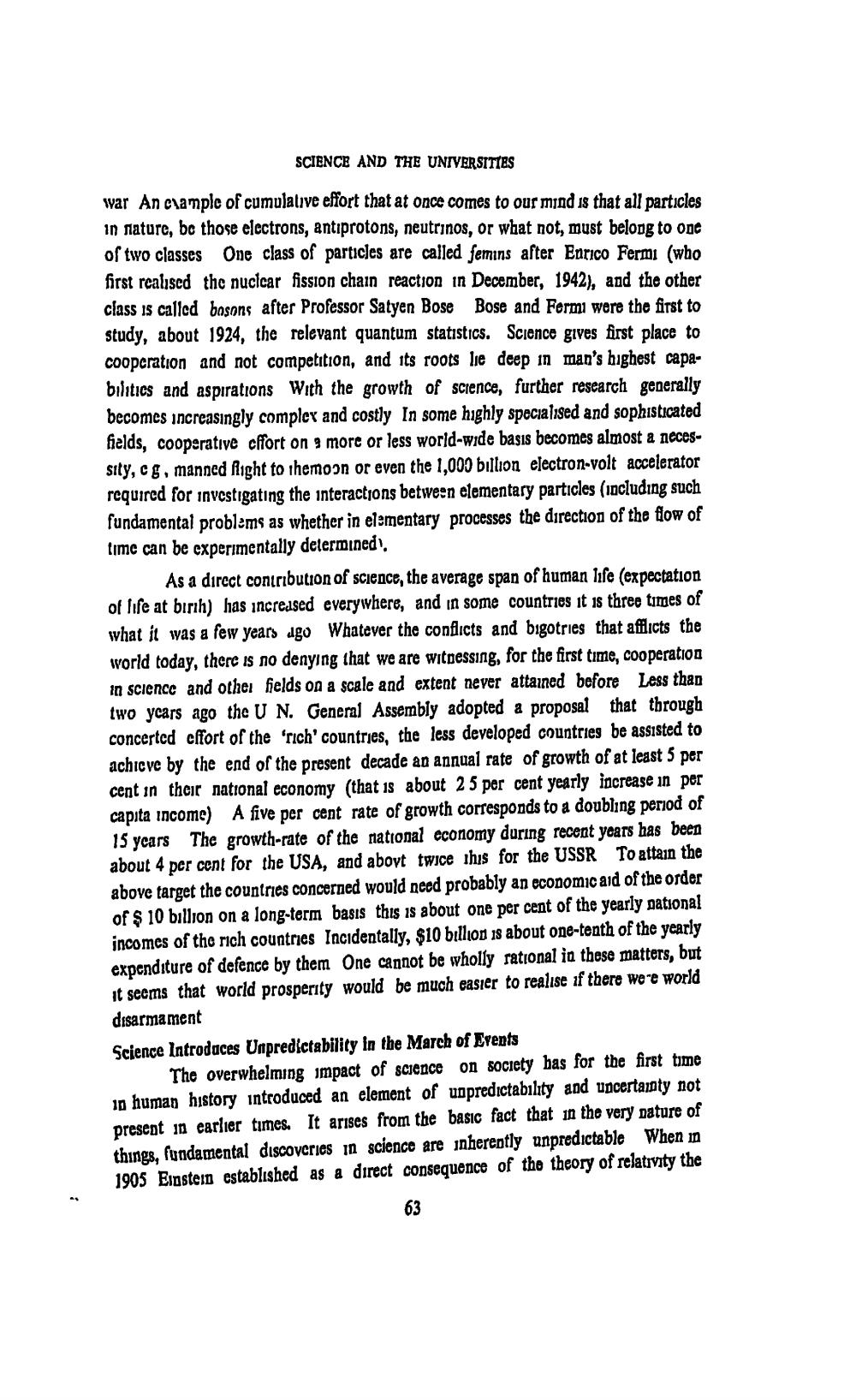________________
SCIENCE AND THE UNIVERSITIES
war An cxample of cumulative effort that at once comes to our mind is that all particles in nature, bc those electrons, antiprotons, neutrinos, or what not, must belong to one of two classes One class of particles are called femins after Enrico Fermi (who first realised the nuclcar fission chain reaction in December, 1942), and the other class is called hosons after Professor Satyen Bose Bose and Fermi were the first to study, about 1924, the relevant quantum statistics. Science gives first place to cooperation and not competition, and its roots lie deep in man's highest capabilitics and aspirations with the growth of science, further research generally becomes increasingly complex and costly In some highly specialised and sophisticated fields, cooperative cffort on 9 more or less world-wide basis becomes almost a necessity, cg, manned Right to themoon or even the 1,000 billion electron-volt accelerator required for investigating the interactions between elementary particles (including such fundamental problems as whether in elementary processes the direction of the flow of time can be experimentally determinedı.
As a direct contribution of science, the average span of human life expectation of life at birih) has increased everywhere, and in some countries it is three times of what it was a few years ago Whatever the conflicts and bigotries that afflicts the world today, there is no denying that we are witnessing, for the first time, cooperation in science and other fields on a scale and extent never attained before Less than two years ago thc U N. General Assembly adopted a proposal that through concerted cffort of the 'rich' countries, the less developed countries be assisted to achicve by the end of the present decade an annual rate of growth of at least 5 per cent in their national economy (that is about 25 per cent yearly increase in per capita income) A five per cent rate of growth corresponds to a doubling period of 15 years The growth-rate of the national economy during recent years has been about 4 per cent for the USA, and abovt twice this for the USSR To attain the above target the countries concerned would need probably an economic and of the order of $ 10 billion on a long-term basis this is about one per cent of the yearly national incomes of the rich countries Incidentally, $10 billion is about one-tenth of the yearly expenditure of defence by them One cannot be wholly rational in these matters, but it seems that world prosperity would be much easier to realise if there were world disarmament Science Introduces Unpredictability in the March of Events
The overwhelming impact of science on society bas for the first time in human history introduced an element of unpredictability and uncertainty not present in earlier times. It arises from the basic fact that in the very nature of things, fundamental discoveries in science are inherently unpredictable When in 1905 Einstein established as a direct consequence of the theory of relativity the
63




